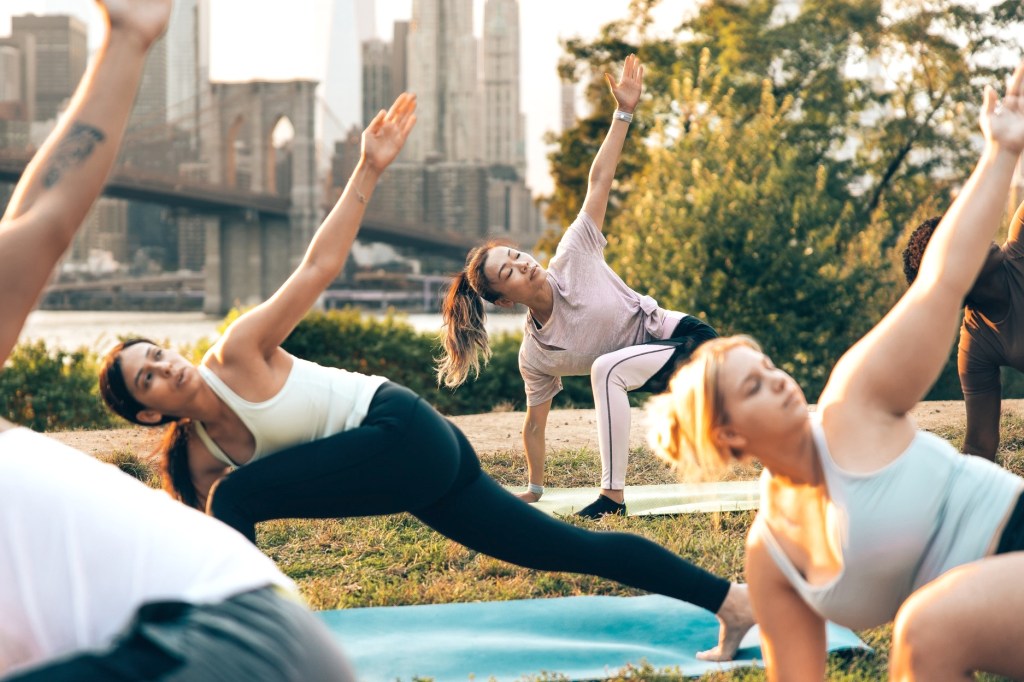For some people, the churn and burn of working out is a reward in and of itself, and we love that for them. But if you’re the type for whom working out is a chore, you know that any chance to make it feel less so is welcome — especially given the recommendation that we get 150 minutes of moderate aerobic exercise a week. Great news: Research out of University College London is flexing the opportunity for you to view your sweat sessions through a whole new lens.
Published July 7 in the journal Frontiers in Psychology, the study found that our personalities may influence the way we engage with exercise — specifically, the types of exercise we like best and least.
“Our brains are wired in different ways, which drives our behaviors and how we interact with our environment,” first author Flaminia Ronca explained in a news release. “So it’s not surprising that personality would also influence how we respond to different intensities of exercise.”
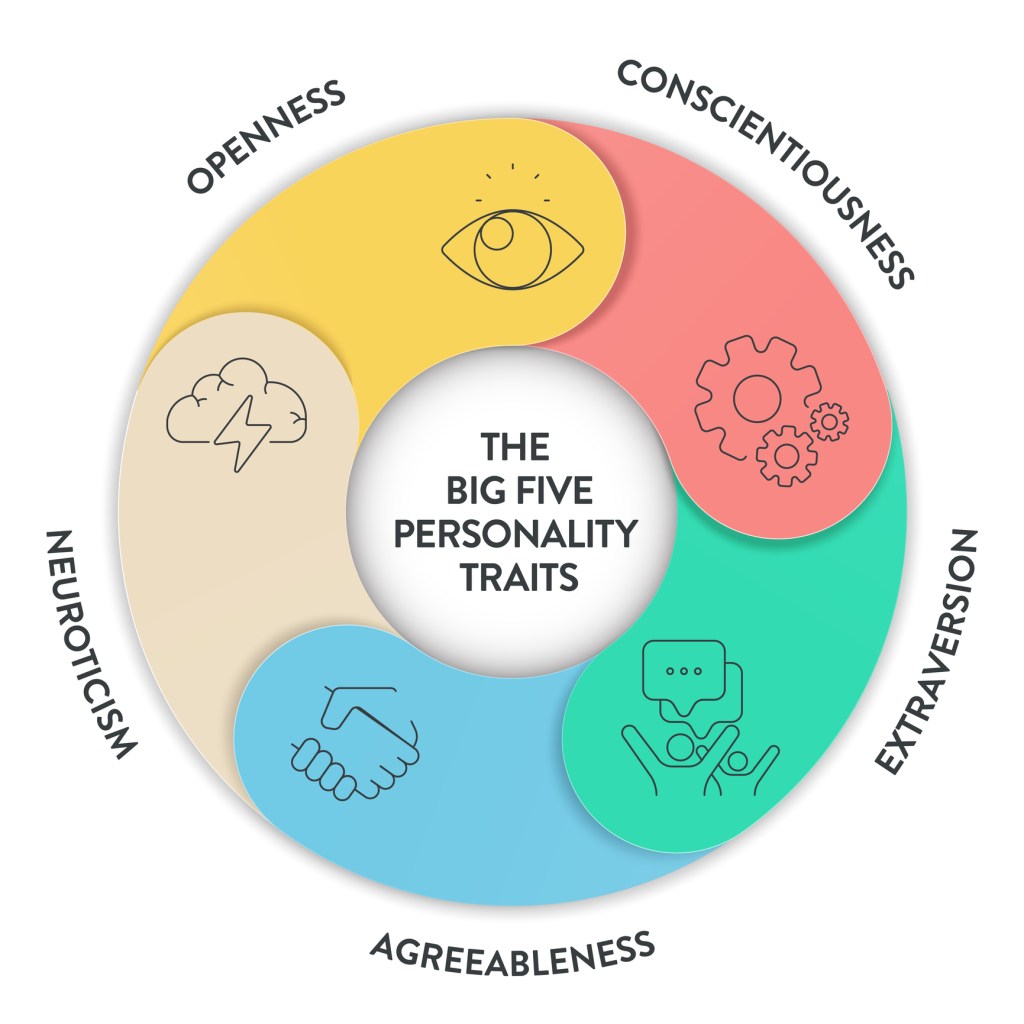
To investigate that influence, Ronca and her colleagues began by putting participants through baseline physical fitness testing. From there, subjects were split into two groups — an eight-week, home-based cycling and strength training group, and a control group that didn’t change their usual lifestyle.
Participants filled out questionnaires on their levels of stress before and after the program, while also rating how much they liked each exercise during the sessions. In addition, they completed an inventory of the Big 5 personality traits: openness, conscientiousness, extroversion, agreeableness, and neuroticism.
The research team found that while not all the personality traits were linked with enjoying specific types of exercise, there were some definite connections. Read on to learn the findings for each trait — and to get ideas for workouts that fit your personality the best. But first, take a Big 5 test to find out which traits you score high and low in.
What Workout Style Is Right for Your Personality Traits?
First, a disclaimer: Everybody is different — even those who share the same high marks on certain personality traits — so selecting the workout that’s right for you should be based on the complexities and circumstances of your unique life.
The study found that those who marked high in extroversion particularly enjoyed greater intensity exercise — which tracks with extroverts being characterized in part by having high energy. Extroversion is also marked by sociability, so one limitation of the study in determining which workouts extroverts like most is that after baseline testing, all participants completed an at-home training program.
Extroversion
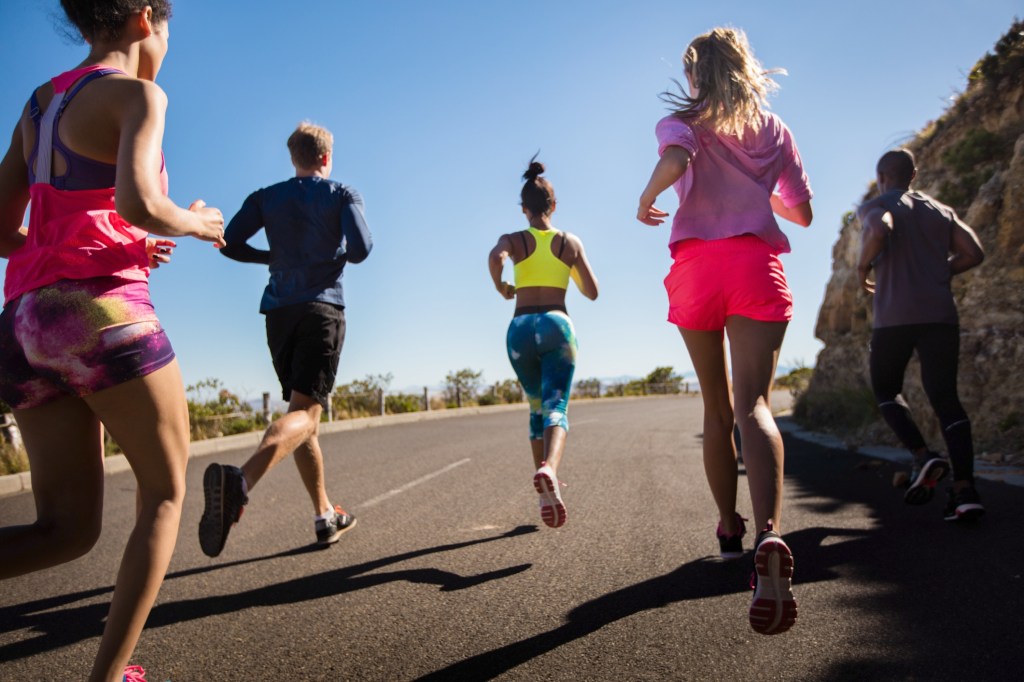
That noted, people who score high in this trait might especially enjoy high-energy group fitness options that also offer the chance for making friends, like Zumba, HIIT, or bootcamp classes. “These classes are all about people coming together, pushing each other,” Jessica Matthews, creator of the Master of Science in Integrative Wellness program at Point Loma Nazarene University, told Women’s Health. “It’s the opportunity to just be with people, to get that social element, plus get a great workout.”
Another option, particularly for people who like to be outside, is a running club — and Road Runners Club of America offers a searchable directory for finding one in your area.
Agreeableness
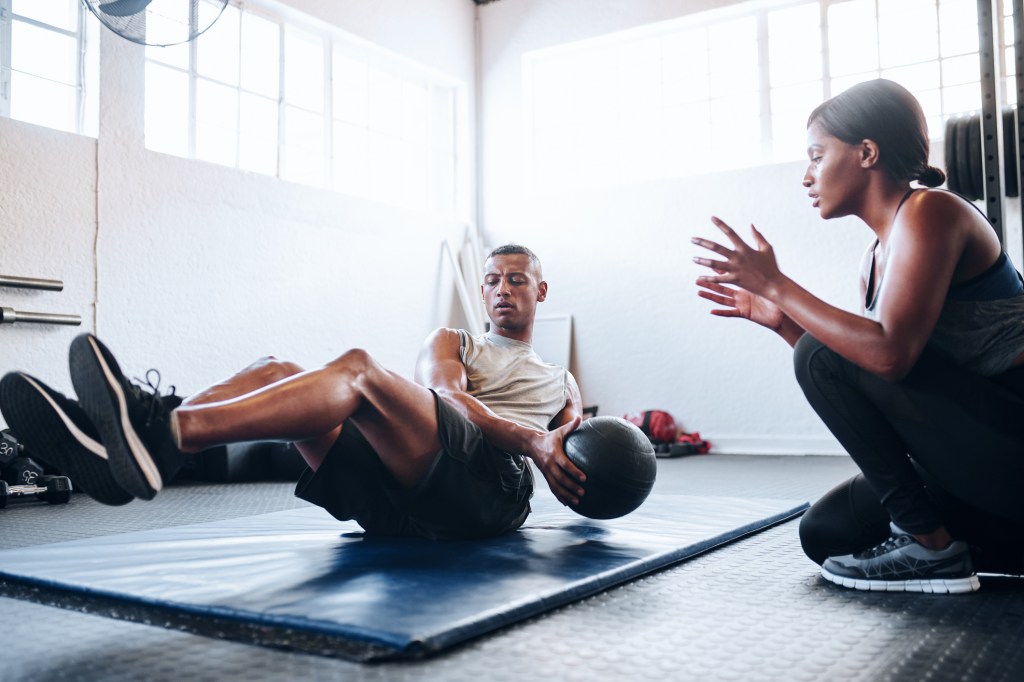
Compassion, respectfulness, and trust in others are all part of being agreeable, per Psychology Today. While the study above didn’t find a link between this trait and the enjoyment of specific activities, it stands to reason that those who tend to go with the flow and put their trust in another person might enjoy group classes or personal training sessions more than someone who, say, prefers to be in control at all times.
Healthline points out that the opposite of agreeableness is competitiveness, so if you score low in the former, you might thrive in a competitive activity like CrossFit. Of course, competing against yourself is also an option — marking down your personal record, or PR in gym lingo, for any activity and then aiming to beat it can be a great motivator.
Conscientiousness
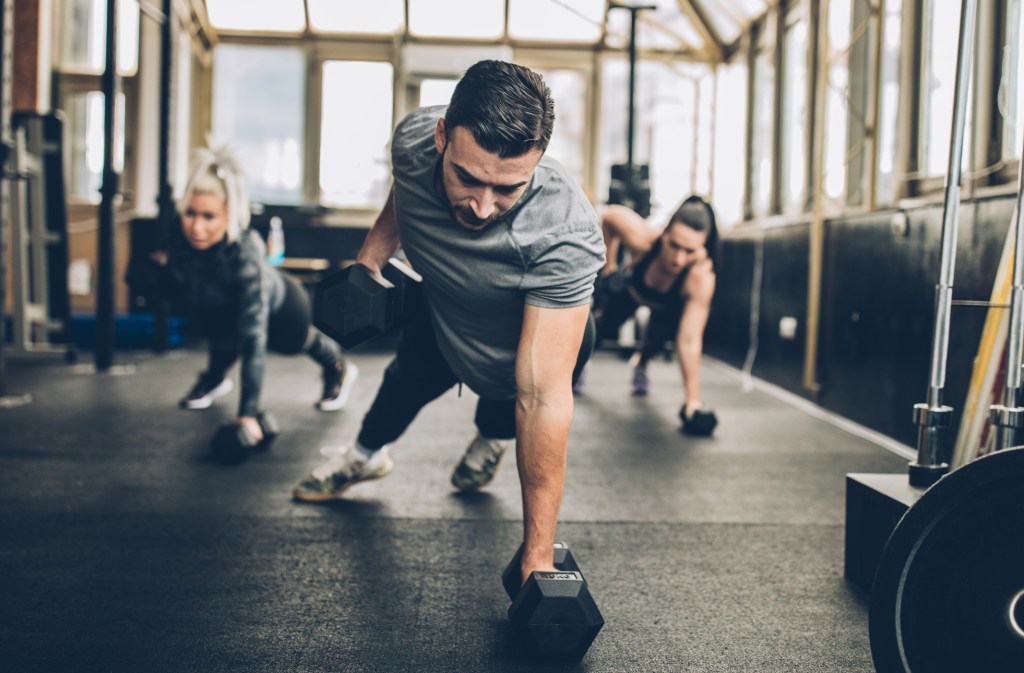
Qualities associated with conscientiousness include organization, productiveness, and responsibility. It makes sense then that participants in the study who scored high in this trait tended to be more physically active and have greater general fitness levels. (If you meticulously track every workout and never bail on a fitness class last minute to binge-watch reality TV with a pint of cookies and cream, you just might be conscientious!)
It’s interesting, though, that the trait did not predict greater enjoyment for any specific form of exercise; the researchers suggested this could be due to conscientious people being more motivated by the reward of positive health outcomes than in-the-moment enjoyment.
That means if you score high in conscientiousness, you may want to first identify your specific goals — such as building muscle, improving flexibility, or upping your endurance — and then select workouts tailored to delivering that result rather than ones you think will be most fun. Check out suggestions for picking the right workout plan for your goals.
Neuroticism
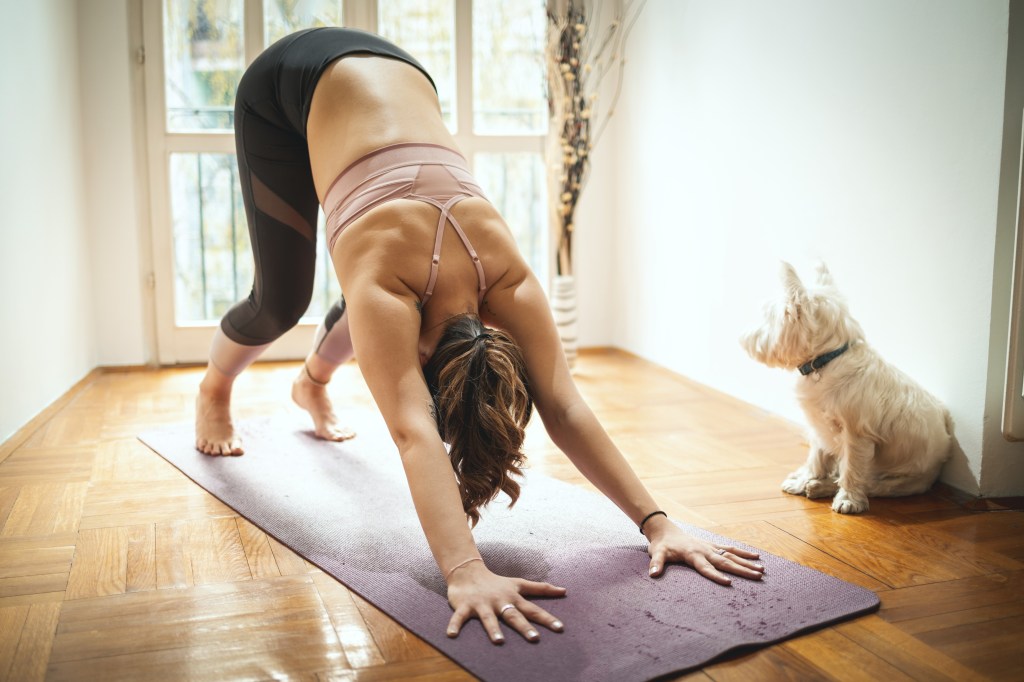
This term is defined by a tendency toward anxiety, self-doubt, depression, and other negative emotional states.
In the study, those who scored high in neuroticism tended to enjoy lighter exercise and preferred the at-home activities to the baseline fitness testing in the lab — so a group class that displays everyone’s scores on a leader board would probably not be up their alley. They were OK with higher intensity activity as well, but preferred it in short bursts rather than prolonged periods.
The research’s biggest takeaway regarding this trait, however, is that only the participants with higher levels of neuroticism experienced a significant decrease in stress after the eight weeks, which highlights how important working out can be for people prone to negative emotions. To that end, finding something you enjoy and will continue doing is essential.
Consider trying yoga at home or going for solo runs, making sure to take breaks in between bursts of speed.
Openness

People with high levels of openness tend to be more adventurous and willing to try new experiences, and may also have high levels of curiosity and imagination.
Previous research into personality types and physical activity hadn’t identified a link between openness and exercise enjoyment, but this study did: Participants who scored high in openness generally preferred lower intensity exercises to strenuous ones. The authors noted that the trait has previously been associated with greater body awareness, “perhaps indicating that open-minded individuals may have a stronger tendency to focus on their sensations.”
If you get high marks on openness, you might like signing up for ClassPass so you can try something new every so often. And since adventure is your jam, going trail hiking or joining a rock climbing gym could also be a good option. Or — you could take the more emotionally adventurous route and try a pole dancing class. (Comfort zone? Demolished!)
Final thoughts: Some experimenting may be required to find your ideal workout — and it might even end up being one that doesn’t correlate with your highest-scoring traits on the Big 5 test.
As Ronca told Today: “Just do something you enjoy, and no matter what you do, keep moving.”
RELATED: Have You Heard of Cozy Cardio? Learn All About the Latest Fitness Trend — And Give It a Try
